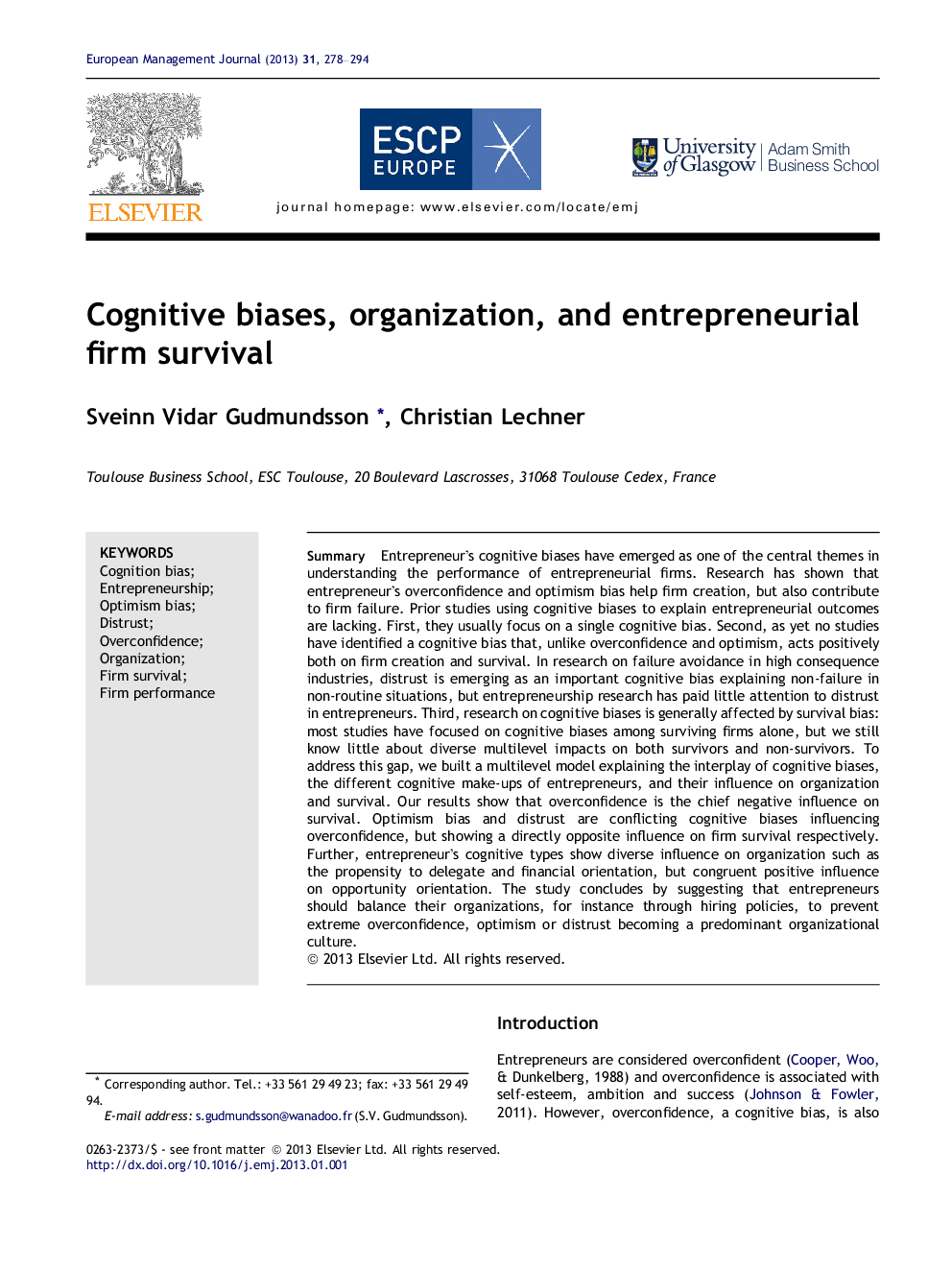| کد مقاله | کد نشریه | سال انتشار | مقاله انگلیسی | نسخه تمام متن |
|---|---|---|---|---|
| 1015002 | 939703 | 2013 | 17 صفحه PDF | دانلود رایگان |

SummaryEntrepreneur’s cognitive biases have emerged as one of the central themes in understanding the performance of entrepreneurial firms. Research has shown that entrepreneur’s overconfidence and optimism bias help firm creation, but also contribute to firm failure. Prior studies using cognitive biases to explain entrepreneurial outcomes are lacking. First, they usually focus on a single cognitive bias. Second, as yet no studies have identified a cognitive bias that, unlike overconfidence and optimism, acts positively both on firm creation and survival. In research on failure avoidance in high consequence industries, distrust is emerging as an important cognitive bias explaining non-failure in non-routine situations, but entrepreneurship research has paid little attention to distrust in entrepreneurs. Third, research on cognitive biases is generally affected by survival bias: most studies have focused on cognitive biases among surviving firms alone, but we still know little about diverse multilevel impacts on both survivors and non-survivors. To address this gap, we built a multilevel model explaining the interplay of cognitive biases, the different cognitive make-ups of entrepreneurs, and their influence on organization and survival. Our results show that overconfidence is the chief negative influence on survival. Optimism bias and distrust are conflicting cognitive biases influencing overconfidence, but showing a directly opposite influence on firm survival respectively. Further, entrepreneur’s cognitive types show diverse influence on organization such as the propensity to delegate and financial orientation, but congruent positive influence on opportunity orientation. The study concludes by suggesting that entrepreneurs should balance their organizations, for instance through hiring policies, to prevent extreme overconfidence, optimism or distrust becoming a predominant organizational culture.
► Our results show that overconfidence is the chief negative influence on survival.
► Optimism bias and distrust influence overconfidence.
► Optimism bias and distrust show opposite influence on firm survival.
► Optimism bias and distrust show dissimilar influence on organization.
► Entrepreneurs should balance their organizations through hiring policies.
Journal: European Management Journal - Volume 31, Issue 3, June 2013, Pages 278–294